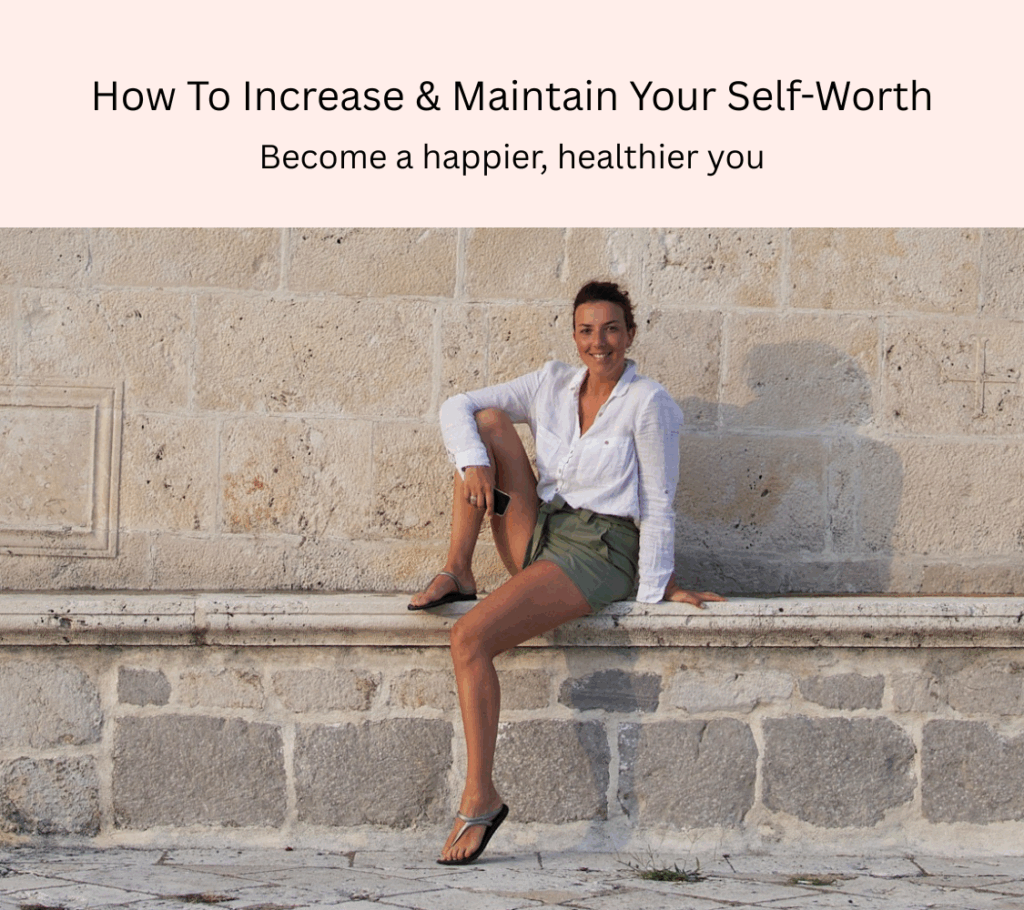
So, the previous tip for good mental health during self-isolation and social distancing was about connecting with people but Tip 4 is about self-care and that sometimes means disconnecting!
Sometimes we need to disconnect from people and the demands that healthy (and unhealthy) relationships naturally place on our time, energy and focus.
Yes positive relationships are linked to our happiness, health and longevity but balance is important and a positive relationship with yourself is equally important. You can’t be there for all people all the time and not be there just for yourself. Self-care or caring for yourself allows you to rest, recharge and rebuild your energy reserve, and only then can you be there for others in the best way possible, too.
Find yourself getting unnecessarily short-tempered with loved ones? Maybe you just need some me-time. Getting overly worried about things that aren’t really that much of a big deal? Maybe you just need some me-time or a good night’s sleep or both.
Tip 4: Maintain self-care
Let’s take a quick look at three easy self-care activities that you will benefit from implementing every day.
a) Me-time
Have some time out from people, every single day, and just spend the time doing what you want to do, as you want to do it. Contract this time out with your family if you need to, e.g. ‘I’m going to spend an hour in the bedroom with the door closed just to have some time out, please don’t interrupt this for me (and please keep the kids away, too).’
You can spend that time doing anything you want to do as you want to do it – read a book, meditate, have a hot soak in the bath with candles, sit quietly with your thoughts, watch a TV show, whatever. As it is time-out from the demands of the world, aim to make this time our from social media and the news, especially right now where it is overwhelming on the negative, hysteria-spreading side.
I recommend an hour every day if you can, at least half an hour if not. It’s important for your mental health, so tell your family so and tell yourself so if you feel guilty for it. You’re not being selfish, you’re being responsible. Sometimes it’s helpful to have this time out after your working (from home) day and before you start family time or working on personal goals or doing jobs around the house. Basically, just chill out for a bit, you’ll be much more resilient to life’s stresses when you do, and you’ll enjoy life much more, too.
b) Sleep well
There are many science-backed benefits to getting a good night’s sleep, here are just a few of them.
Getting a good night’s sleep is vital for our mental health as it helps the brain to process the things we have been worried about, which prevents us from having an ongoing negative reaction to it the following day. Think about how sometimes you really do just feel better after a good night’s sleep or how everything really does feel better in the morning after a good night’s sleep. [1]
Sleep also helps us to consolidate memories, important for you and your life goals and important for any offspring you are homeschooling. [2]
Sleep deprivation can also hinder effective non-verbal communication (such as facial expressiveness) [3] which can lead to misunderstandings and let’s face it, whilst at home with loved ones 24/7, the last thing we need to add is look moody when we’re just tired, thus fuelling unnecessary arguments.
Aim for 8 hours every night, give or take, depending on your personal needs. Have a hot shower before hand or a hot cup of milk, to help you drift off quickly and easily. Avoid emails, social media and news for two hours before hand, to help your brain calm down and relax. Also make sure you’re warm enough, and comfortable enough, and wear an eye mask if need be to better shut light out.
c) Eat well
Good nutrition is vital for our health, mental and physical; you wouldn’t put diesel in a petrol car, and you wouldn’t neglect to top up the oil and water the car needs, and in the same way we must give the body water, vitamins and minerals so that it can execute all its jobs for keeping us alive and healthy.
The main one I will mention right now is maintaining a healthy gut because gut bacteria affect how the brain and body responds to stress.
Gut bacteria affect the function of three brain regions that work together to coordinate and influence our body’s response to stress – the hypothalamus, pituitary gland and adrenal gland – the co-working of which is referred to as the HPA axis. [4] So eat foods that help maintain a healthy gut, for example, bananas, broccoli, blueberries, oranges, bran, lentils and beans. Such foods provide good gut bacteria and are fibre-rich and so help clean out waste and toxins, thus helping you to maintain a healthy gut that can properly absorb the nutrients from the food you’ve eaten. This may be partially why a plant-based diet helps reduce anxiety. [5]
There are many other self-care activities mentioned in each of the three books listed below, should you want more. Otherwise, just remember, when you make looking after yourself a priority every day, your reinforce your resilience, and mental and physical health and well-being, and your worth.
Lots of love, Sam xx
In this series: Tip 1, Tip 2, Tip 3, Tip 4, and Tip 5 For Good Mental Health During Self-isolation & Social Distancing
References
1, 2: Resilient Me: How to worry less and achieve more
3: Happy Relationships: 7 simple rules to create harmony and growth
4, 5: Anxiety Free: How to trust yourself and feel calm
Self-Help Courses Relationship Coaching Dating Coaching Anxiety Coaching Confidence Coaching

























